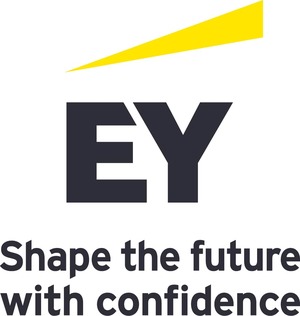EY survey: the opportunity is ripe for private equity to prosper, but margin concerns remain
- Investors continue to pour capital in private equity firms, which creates operational challenges for CFOs as they seek new ways to support scalable growth.
- CFOs note talent management, especially gender and cultural diversity, as a top priority.
- Outsourcing is touted as one of the key ways that firms can address margin compression.
NEW YORK, Jan. 16, 2019 /PRNewswire/ -- Private equity chief financial officers (CFOs) reported another year of unprecedented growth of their firms but are still struggling to overcome operational issues that are dramatically eroding their margins, according to the EY 2019 Global Private Equity Survey, How do you see the opportunity in your obstacles?
The sixth annual survey of 103 private equity (PE) CFOs finds that despite great strides in launching new products and investing in technological solutions, expenses continue to grow as fast as assets. The survey also found that while CFOs begin to prioritize the cost-effective and competitive advantage of outsourcing to boost their bottom lines, they are acutely aware of the talent necessary to grow their firms.
"CFOs face different paths for altering their operational infrastructure and achieving sustainable growth," said Mike Lo Parrino, Partner, Ernst & Young LLP. "Determining the right balance of technology, talent and outsourcing is not a one-size-fits-all approach. While CFOs are divided on which path is the best fit for their aspirational goals, one thing is certain: they must act quickly to achieve a competitive edge."
Investors increasingly choose PE investments; CFOs seize momentum to maximize asset growth
Interest in PE is booming, so it is unsurprising that 76% of CFOs said that asset growth is the top priority for their firm. What is shocking is the level of competition that the PE industry poses to hedge funds. Currently, 18% of the typical investor's alternatives portfolio is made up of traditional PE investments, and nearly 40% of investors expect to allocate more capital to PE firms. Taking advantage of this momentum and displaying optimism, over half of CFOs noted that they expect to raise a new fund in 2019 and 65% expect that the new fund will be larger than their last.
Sensitive to investor preferences regarding traditional alternative asset managers' offerings, 59% of PE CFOs are responding by launching new strategies, and less than half (41%) are strictly increasing assets in existing strategies. In their quest to grow assets, of those PE CFOs who offer or plan to offer nontraditional products in the next two years, 35% will focus on private credit, and another quarter will focus on products across real estate, real assets and venture capital.
There is a cost in growing assets rapidly, causing margin erosion at many management companies during a period of growth
The pursuit to grow top-line revenue has been plagued by margin erosion. Nearly 40% of CFOs noted that margins have worsened over the past two years, and another third reported that they were unchanged. Only 28% have seen margin improvements. This begs the question: are PE firms doing enough to address gaps in their operational infrastructure to fend off ever-increasing margin pressures? PE firms are looking at a number of areas to reduce costs, with 39% of CFOs listing technology as a high priority in mitigating margin erosion and another 37% aiming to prioritize outsourcing.
CFOs recognize that technology isn't a short-term fix and understand the long-term benefit for their digital future
PE firms are just emerging from the era of Excel spreadsheets. Despite historical underinvestment in technology, most PE CFOs note that their firms have recently made or are planning to make investments in technology across a wide array of functions. Over the past two to three years, PE managers have made technology investments in the areas of fund accounting (66%), investor relations (62%), accounts payable/time and expenses (57%), and compliance and regulatory reporting (56%).
Unfortunately, most report that the payoff has yet to be seen. The tax and accounts payable finance functions have received the biggest benefit thus far, with 33% and 40% of CFOs reporting net decreases in operating expenses in these areas, respectively. The hurdles include the need to enter clean data, integrate systems and fully enable the workforce.
With technological advances comes the need for skill sets beyond investment and finance. When asked if their workforce is ready to meet the current data literacy and technology requirements of their roles, the vast majority of CFOs feel that they are. Still, 52% of CFOs seek candidates with more data and analytics experience and 23% seek candidates with coding and programming skills, indicating that CFOs are focused on strengthening their staffs' technology literacy.
Unlike their peers across the financial services industry, PE firms have been slow to adopt robotics. The largest firms (by assets under management) are the furthest along in pursuing next generation technology investments, as 52% are planning to make an investment in robotics, as compared to just 10% of the smallest firms. Still, an awareness gap exists. Nearly 40% of CFOs leading the largest PE firms are not aware of the breadth of robotics solutions available and their capabilities. This number skyrockets to 77% for smaller PE firms.
Often overlooked, outsourcing is a key competitive advantage for fighting margin compression
Some CFOs report that they are turning to outsource providers to allow employees to pivot their focus from routine, time-consuming tasks to more value-add activities. Most firms are already outsourcing some portion of their tax function (94%), compliance/regulatory reporting (71%) and fund accounting (55%). Yet, fewer than half of PE CFOs note that they are outsourcing activities such as investor relations, treasury, portfolio analysis, valuation, and accounts payable/time and expenses, leaving room for further opportunities to outsource.
CFOs place diversity high on their agenda, prioritizing gender and cultural diversity
Despite the increasing availability of technology and outsourced operational solutions, 60% of PE CFOs rank talent management as a top strategic priority. In this environment, talent management programs are a "need to have," not a "nice to have" for recruiting and retaining leading-class talent.
As the workforce is evolving, approximately half of CFOs have changed the profile of the candidates that they evaluate, interview and ultimately hire relative to 5 to 10 years ago. Now, more than ever, they recognize the role diversity plays in fostering different perspectives that can positively impact investment decisions. Because of this, 79% of CFOs seek to improve gender diversity and 63% seek to increase cultural diversity.
Even as technology plays an increasingly critical role in a fund's operations, there is no substitute for quality people. Investors expect that talent programs to develop future leaders, increase diversity of skill sets and maintain employee satisfaction to minimize disruption caused by turnover are commonplace. In fact, 78% of investors request information about a firm's talent management program during the due diligence process, and, of those that request information, 68% say that is it critically important to them. Managers need to heed these requests, as more than half (54%) of PE CFOs surveyed do not yet have a formal talent management program in place.
Read the complete survey at www.ey.com/pesurvey.
Notes to Editors
About the survey
"How do you see the opportunity in your obstacles?" is the sixth annual EY Global Private Equity Survey. The purpose of this study is to record the views and opinions of CFOs and heads of finance at private equity firms around the globe. Topics include CFOs' strategic priorities, technology and data transformation, talent management, outsourcing and the future landscape of the private equity industry. From October to December 2018, Greenwich Associates conducted 103 telephone and online interviews with private equity firms.
EY is a leader in serving the global financial services marketplace
Nearly 51,000 EY financial services professionals around the world provide integrated assurance, tax, transaction and advisory services to our asset management, banking, capital markets and insurance clients. In the Americas, EY is the only public accounting organization with a separate business unit dedicated to the financial services marketplace. Created in 2000, the Americas Financial Services Organization today includes more than 11,000 professionals at member firms in over 50 locations throughout the US, the Caribbean and Latin America.
EY professionals in our financial services practices worldwide align with key global industry groups, including our Global Wealth & Asset Management Center, Global Banking & Capital Markets Center, Global Insurance Center and Global Private Equity Center, which act as hubs for sharing industry-focused knowledge on current and emerging trends and regulations in order to help our clients address key issues. Our practitioners span many disciplines and provide a well-rounded understanding of business issues and challenges, as well as integrated services to our clients.
With a global presence and industry-focused advice, EY financial services professionals provide high-quality assurance, tax, transaction and advisory services, including operations, process improvement, risk and technology, to financial services companies worldwide.
About EY
EY is a global leader in assurance, tax, transaction and advisory services. The insights and quality services we deliver help build trust and confidence in the capital markets and in economies the world over. We develop outstanding leaders who team to deliver on our promises to all of our stakeholders. In so doing, we play a critical role in building a better working world for our people, for our clients and for our communities.
EY refers to the global organization, and may refer to one or more, of the member firms of Ernst & Young Global Limited, each of which is a separate legal entity. Ernst & Young Global Limited, a UK company limited by guarantee, does not provide services to clients. For more information about our organization, please visit ey.com.
This news release has been issued by Ernst & Young LLP, a member firm of EY serving clients in the US.
SOURCE EY
Related Links
WANT YOUR COMPANY'S NEWS FEATURED ON PRNEWSWIRE.COM?
Newsrooms &
Influencers
Digital Media
Outlets
Journalists
Opted In




Share this article